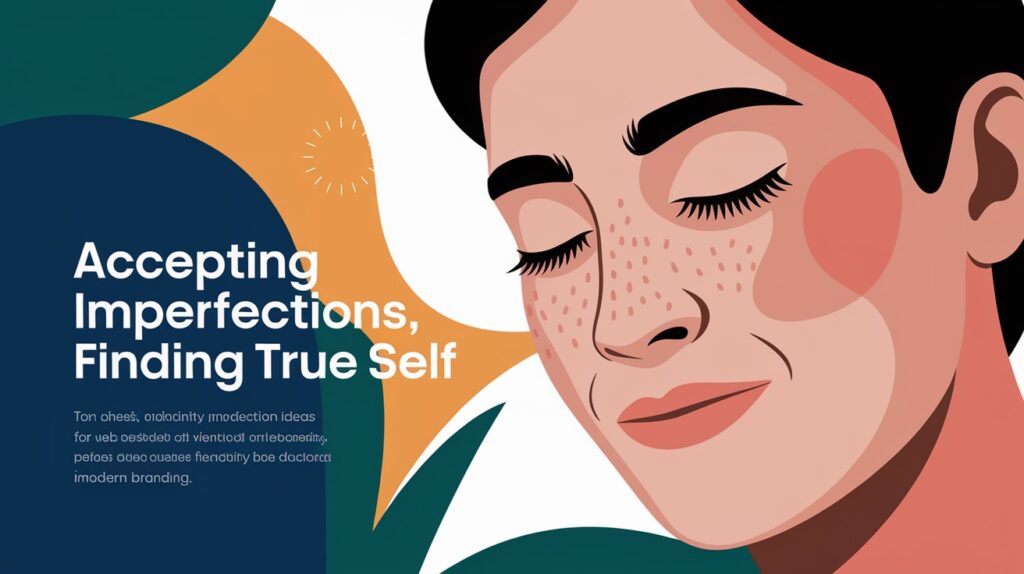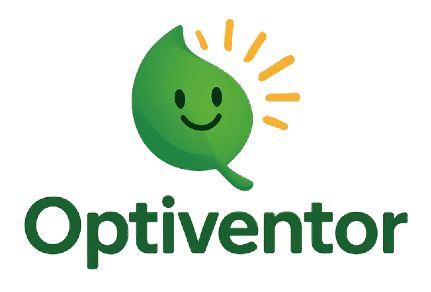Do You Unlock Yourself? Here Are Power of Authenticity ?Unblock Now…
The Transformative Power of Authenticity & Self-Acceptance
Introduction: The Universal Quest for Being You
In a world that often seems obsessed with perfection, where curated online personas and societal expectations dictate what is “good enough,” it is easy to forget that true uniqueness lies within our flaws and quirks.
This pervasive pressure to conform creates a fundamental tension, driving a deep yearning to be genuinely oneself.
This quest for genuine self-expression is not merely a passing trend; it is a profound human desire to break free from external validation and find inner peace. The underlying trend in modern life, exacerbated by constant comparison, is that authenticity becomes a conscious, often challenging, choice rather than a default state.
This guide aims to illuminate this path, offering a comprehensive exploration of what it means to live authentically and embrace oneself fully.
At the heart of this journey lie two interconnected concepts: authenticity and self-acceptance. Authenticity, in both philosophical and psychological contexts, refers to the quality of an individual achieving harmony between their actions and their true self, aligning their values and desires despite external pressures.
It gained prominence as a critique of the human condition following industrialization, emphasizing a connection to genuine living. Self-acceptance, on the other hand, is the state of completely embracing who one is, without qualifications, conditions, or exceptions, including both strengths and imperfections.
This profound embrace of one’s entire being is considered a foundational principle in many leading psychological frameworks for well-being and a good life. By understanding and cultivating these principles, individuals can unlock a pathway to a life marked by freedom, inner peace, and profound fulfillment.
The ultimate value proposition of this exploration is not just informational, but a guide towards these deeply desired states of being.
Unpacking Authenticity: Beyond the Buzzword
Authenticity, a concept deeply rooted in philosophy and psychology, is often misunderstood. Philosophically, it signifies the alignment of one’s actions with their true self, a notion that emerged as a critique of the human condition following industrialization.5 Martin Heidegger, a key figure, distinguished between beings that simply exist and those aware of their existence, asserting that authenticity stems from self-ownership and conscious choices, particularly shaped by the awareness of mortality.5 Søren Kierkegaard, another influential thinker, linked personal authenticity to finding an authentic faith and remaining true to oneself, even when challenged by the moral compromises of bourgeois society and the “levelling” effect of mass culture that diminishes individuality.2 This deep philosophical underpinning suggests that the journey to authenticity is a profound act of self-creation and responsibility. It is an active, conscious choice in a world often perceived as absurd or lacking inherent meaning, where one is “thrown” into existence.2 A lack of authenticity, termed “bad faith” in existentialism, is viewed not merely as a personal inconvenience but as a fundamental moral failing.2
From a psychological standpoint, authenticity identifies a person living in accordance with their true Self and personal values, rather than being dictated by external societal demands such as social conventions, kinship, or duty.2 It is a central concept in contemporary models of well-being and the good life.2 Key components of authenticity include self-awareness (a deep understanding of one’s thoughts, emotions, and behaviors), congruence (aligning actions with internal values and beliefs), transparency (being open and honest in relationships), and vulnerability (the willingness to expose one’s true self).10
Despite its growing popularity, several common misconceptions cloud the true nature of authenticity. It is not a static state, but rather a continuous process of personal evolution and adaptation.11 Individuals evolve, and their authentic selves may differ over time. Furthermore, authenticity does not equate to radical honesty or saying every thought that comes to mind; it involves healthy boundaries and prudence in sharing personal aspects.11 Nor does it demand behaving the exact same way in every situation; there is a “range of self” that allows for different expressions depending on the context, without being insincere.11 This dynamic and contextual nature challenges simplistic “be yourself” advice, indicating that authenticity is about congruence between internal values and external actions
within a given context, requiring continuous self-reflection. Authenticity is also not a contest to be “the most authentic” person, nor is it solely focused on one’s relationship with others; it is fundamentally about one’s relationship with oneself.11

The Foundation of Freedom: Understanding Self-Acceptance
Self-acceptance forms the bedrock of a fulfilling and authentic life. It is defined as the complete embrace of oneself, encompassing all attributes—positive or negative—without any qualifications, conditions, or exceptions.6 This means recognizing and valuing one’s inherent worth, irrespective of external achievements, failures, or the opinions of others.7 A crucial aspect is unconditional self-acceptance, which involves understanding that one’s identity is separate from their actions and qualities. It acknowledges that as fallible human beings, mistakes will be made, but these errors do not define one’s entire being.6
It is vital to clarify that self-acceptance does not imply condoning bad behavior or liking every single aspect of oneself. Instead, accepting those less desirable traits and past actions is the crucial first step toward removing, adapting, or improving them.6 This means that genuine self-improvement is necessarily preceded by an acknowledgment of one’s current reality, including imperfections. Without accepting the current reality of one’s flaws, attempts at improvement are often rooted in self-criticism and shame, which are counterproductive to progress.13 True growth, therefore, emerges from a place of compassionate understanding and acceptance, rather than self-loathing.
Self-acceptance is closely related to, yet distinct from, self-esteem. Self-esteem refers to how one feels about themselves—whether they perceive themselves as generally good, worthwhile, or valuable.6 In contrast, self-acceptance is simply the act of acknowledging and accepting who one is, representing a more global affirmation of the self that embraces all facets, not just the “esteem-able” parts.6 While self-esteem often hinges on external validation and achievement, self-acceptance is based on an unconditional acceptance of oneself, flaws and all.6 This fundamental difference means that self-acceptance can lay the foundation for a more robust and positive self-esteem, as it frees individuals from constant reliance on external approval for their sense of worth.6
The transformative power of unconditional self-acceptance is profound. It significantly reduces negative self-criticism and promotes emotional resilience, contributing to overall psychological well-being.6 By accepting oneself, individuals gain better control over their emotions, leading to reduced anxiety, stress, and anger, and a boost in overall mood.7 Furthermore, self-acceptance enables self-forgiveness, allowing individuals to bridge the gap between the part of themselves that needs forgiveness and the part that needs to forgive, thereby releasing the burden of past mistakes and regrets.7
| Criterion | Self-Acceptance | Self-Esteem |
| Definition | Embracing all facets of self (positive & negative) | How one feels about their worth |
| Focus | Global affirmation of self | Evaluation of self |
| Basis | Unconditional (inherent worth) | Conditional (often based on achievements/external validation) |
| Relationship to Imperfections | Acknowledges flaws as part of self | Can be lowered by imperfections |
| Source of Value | Internal (inherent worth) | External (performance, others’ opinions) |
| Impact on Growth | Foundation for healthy, compassionate change | Can be fragile if not rooted in acceptance |
The Profound Rewards: Benefits of Living Authentically
Embracing authenticity and self-acceptance yields a cascade of profound benefits that permeate every aspect of life, from mental well-being to the quality of relationships and a deeper sense of purpose.
Enhanced Mental Well-being: Living authentically is strongly associated with lower levels of anxiety and depression, and significantly higher levels of self-esteem and life satisfaction.3 When individuals live true to themselves, the internal conflict and dissonance that arise from pretending to be someone they are not dissipate, leading to greater peace of mind.8 This genuine way of being also boosts self-confidence and increases emotional resilience, enabling individuals to navigate life’s challenges more effectively and cope with adversity.3 Authentic emotional expression, which is a core component of authenticity, fosters greater self-awareness and plays a crucial role in the healing process, especially for those dealing with mental health concerns.8 This suggests that authenticity provides a robust internal framework for navigating inevitable life difficulties, rather than just a fair-weather benefit.
Deeper, More Meaningful Relationships: When individuals are authentic, they tend to form deeper, more meaningful connections with others, leading to more satisfying personal and professional relationships.10 Authenticity in relationships promotes trust, respect, and emotional intimacy.3 Genuine individuals attract like-minded people, creating supportive networks based on mutual understanding and acceptance.3 Furthermore, when one stops chasing external approval and begins to provide it for themselves through self-acceptance, interactions become more confident and at ease, transforming relationships into an “added extra” rather than a source of validation.15 This allows others to feel safe enough to be their true selves and feel accepted in return.16
Unlocking Personal Growth and a Stronger Sense of Purpose: Authenticity allows individuals to align their actions with their core values, leading to a stronger sense of purpose and direction in life.8 This alignment fosters self-discovery and a deeper understanding of one’s strengths, weaknesses, and passions.16 By embracing individuality and uniqueness, authenticity also promotes diversity and inclusion, as individuals who are true to themselves are more likely to celebrate differences and foster understanding and acceptance of others.3 This broader societal impact means that cultivating authenticity is not just a personal journey but contributes to a more tolerant and inclusive society. Ultimately, living authentically leads to greater fulfillment and satisfaction, empowering individuals to become the “architect of their happiness”.8

| Benefit Category | Specific Benefits |
| Mental Well-being | Reduced anxiety & depression, Increased self-esteem & life satisfaction, Enhanced emotional stability & resilience, Improved coping with challenges, Greater self-awareness, Facilitates healing |
| Relationships | Deeper & more meaningful connections, Increased trust & intimacy, Mutual understanding & respect, Attraction of like-minded individuals, Reduced reliance on external approval |
| Personal Growth & Purpose | Stronger sense of purpose & direction, Alignment with core values, Self-discovery & understanding, Embracing individuality & uniqueness, Greater fulfillment & satisfaction |
| Societal Impact | Promotion of diversity & inclusion, Fosters understanding & acceptance of others |
Navigating the Inner & Outer Landscape: Challenges to Authenticity And Unblock Your True Self
The path to authenticity and self-acceptance is not without its obstacles, often requiring individuals to navigate complex inner and outer landscapes.
Societal Pressures and Fear of Judgment: One of the most significant hurdles is the pervasive pressure to conform to societal norms and expectations.3 This external pressure, coupled with a deep-seated fear of being rejected or judged by others, frequently leads to self-censorship and the suppression of one’s true feelings and desires.3 In existentialist philosophy, living incongruently with one’s values due to these external pressures is termed “bad faith”.2 This creates a cyclical relationship where external pressures and fear of judgment lead to self-censorship, which in turn manifests as internal conflict and dissonance, making it even harder to be authentic. Addressing authenticity therefore requires tackling both these external pressures by setting boundaries and confronting the internal critical voice.
Conquering the Inner Critic and Negative Self-Talk: Beyond external pressures, individuals often grapple with an internalized critical voice. This inner critic, frequently stemming from upbringing or experiences of shame, constantly tells individuals they are not good enough.13 These negative beliefs cause significant suffering and actively hinder unconditional self-acceptance.7 Research indicates that self-criticism is counterproductive, impeding progress and leading to heightened anxiety and demotivation.13 The belief that being hard on oneself leads to success is a common myth, but in reality, it activates a stress response that impairs rational thinking and problem-solving.13
Addressing Mental Health Considerations: Mental health concerns can significantly complicate the journey toward authenticity. Conditions such as depression, with symptoms like low energy, lack of motivation, and difficulty concentrating, can make self-awareness and introspection particularly challenging.20 Furthermore, the pervasive mental health stigma, a lack of adequate support systems, and the invalidation of lived experiences exacerbate these struggles.20 Individuals who grew up in dysfunctional family environments may have learned to minimize themselves and blend in through behaviors like people-pleasing, perfectionism, or codependency, making it harder to develop a voice or self-awareness.20 Avoidance and denial can function as coping mechanisms, but ultimately, recognizing the dysfunction in one’s environment can trigger a crisis in self-identity.20 The cost of inauthenticity is not merely emotional discomfort; it is a fundamental loss of self and purpose, as living according to someone else’s values leads to suffering and a disconnection from one’s core identity and potential.20
Your Practical Path: Cultivating Authenticity & Self-Acceptance Daily
Cultivating authenticity and self-acceptance is a continuous journey that requires consistent effort and practical strategies. These practices are interconnected, with progress in one area often positively influencing others, creating a virtuous cycle of self-improvement.
Strategies for Self-Awareness and Identifying Core Values: The initial step involves deepening self-awareness. This means engaging in self-reflection to understand one’s strengths, weaknesses, values, and beliefs.3 Asking oneself key questions can be highly illuminating: “What are my core values?” “What brings me genuine joy?” “What am I most afraid of?” “What is my definition of success?” and “How do I want to be remembered?”.22 Incorporating mindfulness practices, such as meditation, can further cultivate present-moment awareness, leading to reduced stress and improved emotional regulation, which are foundational for self-discovery.3
Actionable Exercises for Self-Acceptance: Practical exercises can help individuals integrate self-acceptance into their daily lives:
- Practice Gratitude: Regularly write down three to five things for which one is grateful, extending this practice to perceived flaws and lessons learned from failures. This helps retrain the brain to focus on positive aspects, even in challenging situations.6
- Reframe Negative Thoughts: Identify negative beliefs about oneself and challenge them by asking, “Is this true?” Then, replace these negative statements with more positive and compassionate self-talk. This helps to quiet the inner critic and foster a more balanced view of oneself.6
- Forgive Oneself: Engage in self-forgiveness exercises to move past mistakes and regrets. This involves acknowledging that one is human and did their best at the time, which helps release the burden of past actions.6
- Embrace Imperfection: View mistakes not as failures but as opportunities for learning. Grant oneself permission to engage in activities even if the outcome is not perfect. Treating oneself with the same kindness and understanding offered to a friend is crucial.6
- Separate Self from Actions: Understand that one’s identity is separate from their actions and qualities. Mistakes or flaws do not define the whole person, allowing for acceptance without condoning undesirable behaviors.6
Building a Supportive Environment and Setting Healthy Boundaries: While internal work is crucial, the social environment significantly impacts one’s ability to live authentically. It is essential to actively curate one’s social circle. This involves choosing a support system by surrounding oneself with positive individuals who appreciate and uplift them, while minimizing or, if possible, removing negative influences.6 Setting healthy boundaries is another critical step. This involves acknowledging the fear of rejection that may arise but prioritizing one’s values and needs.20 True friends will strive to understand and accept individuals as they are, even when boundaries are set.20 Finally, practicing vulnerability and openness, by being willing to take risks and be honest, helps build trust and credibility in relationships.3
| Practice Category | Specific Practices |
| Self-Awareness & Values | Journaling/Self-Reflection, Identifying Core Values (e.g., What brings me genuine joy?), Mindfulness Meditation |
| Mindset Shifts | Gratitude Practice, Reframe Negative Thoughts, Self-Forgiveness Exercises, Embracing Imperfection (e.g., “talk to yourself like a friend”), Separating Self from Actions |
| Emotional Processing | Practicing Vulnerability, Allowing emotions to move through you |
| Environmental Support | Choosing a Supportive System, Setting Healthy Boundaries |
Real Stories, Real Growth: Embracing Imperfection in Life
The concepts of authenticity and self-acceptance are not abstract ideals; they manifest in tangible ways in everyday life, transforming personal experiences and fostering profound growth. Real-life examples underscore the liberating power of embracing one’s perfectly imperfect self.
Many individuals have shared their journeys of embracing their “oddness” and uniqueness, discovering that their non-conformity is not a weakness but a profound source of strength.19 These narratives often highlight a shift from striving for an unattainable perfection to recognizing that “imperfection isn’t your enemy. It’s what makes you human and it’s your superpower!”.25 For instance, individuals recount learning from mistakes and seeing them as invaluable opportunities for growth, rather than as failures to be lamented.1 This reframing allows for a compassionate response to setbacks, shifting the internal narrative from self-punishment to self-compassion, understanding that one can “only ever do your best”.21 This demonstrates that true growth is not about avoiding mistakes, but about how one responds to them.
Illustrative scenarios further clarify these transformations. A person navigating a divorce, for example, may practice self-acceptance by acknowledging mistakes made in the marriage without allowing those mistakes to define them as a complete failure.6 Similarly, an employee struggling to meet demanding goals can embrace self-acceptance by acknowledging that occasional failure to deliver does not diminish their worth as a person.6 In the realm of public expression, a blogger who initially feared judgment might overcome this fear to write with unfiltered honesty, accepting the potential consequences of their words.26
A particularly compelling example of authenticity in action involves individuals acting in ways that might seem counter to their perceived personality traits. Research indicates that introverts, for instance, may feel more “authentic” and true to themselves when they act extroverted in certain social situations.27 This phenomenon suggests that authenticity is not about rigidly adhering to fixed personality traits, but rather about aligning one’s actions with deeper values and intentions in a dynamic situation, even if those actions appear contradictory to a perceived “type”.27 This demonstrates that individuals possess more agency and choice in how they express themselves authentically than they might initially realize, fostering adaptability rather than rigidity.
Conclusion: Celebrate Your Perfectly Imperfect Self
The journey toward authenticity and self-acceptance is a continuous, evolving process, not a final destination. It is about embracing the entirety of one’s being—strengths, weaknesses, and imperfections—and aligning actions with one’s inner truth and core values, rather than succumbing to external pressures. This ongoing process implies that there will be inevitable ups and downs, setbacks, and continuous learning, making self-compassion and resilience not just benefits of the journey, but also essential prerequisites for sustaining it.
The profound benefits of this path are clear: enhanced mental well-being, characterized by reduced anxiety and depression, and increased self-esteem and resilience; deeper, more meaningful relationships built on trust and genuine connection; and an unlocking of personal growth leading to a stronger sense of purpose and fulfillment. This pursuit is not about achieving an external ideal, but about cultivating a richer, more meaningful internal experience of life. As the wisdom suggests, “Life isn’t about being perfect. It’s about showing up, trying, and finding joy in the process—flaws and all”.25
To embark on or continue this transformative journey, individuals are encouraged to integrate daily practices that foster self-awareness, challenge negative thought patterns, and build supportive environments. Reflect on one imperfect thing about oneself that can be embraced today.25 Share your journey and experiences, fostering a community of genuine connection.
Check Out Our Other Blogs About Inspirations.Share it with Your Freinds on Social Media Such as Facebook & Whatsapp…



